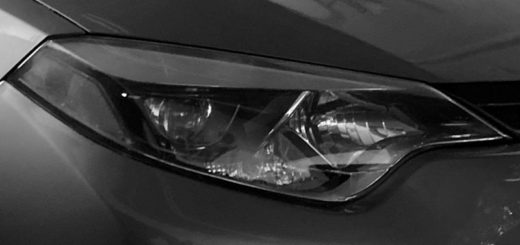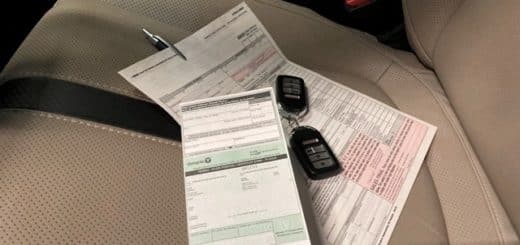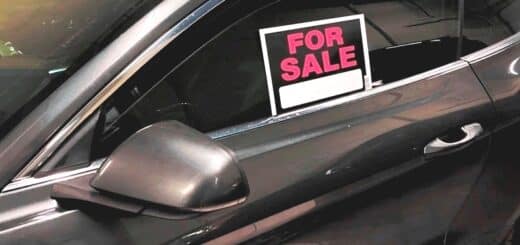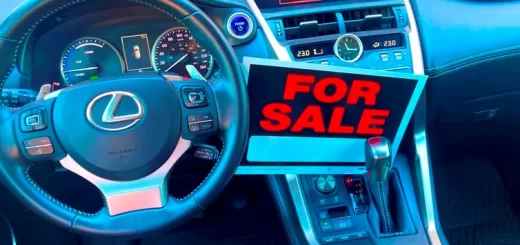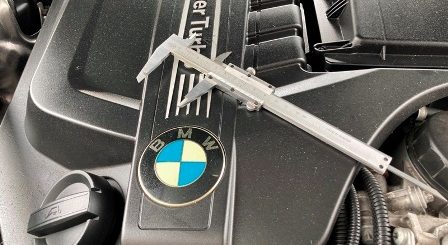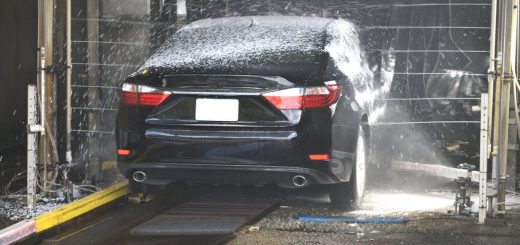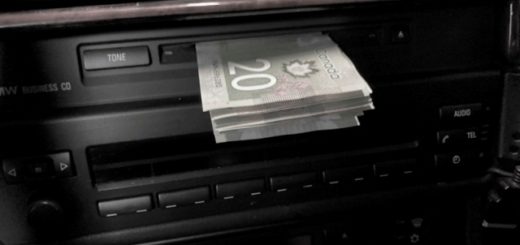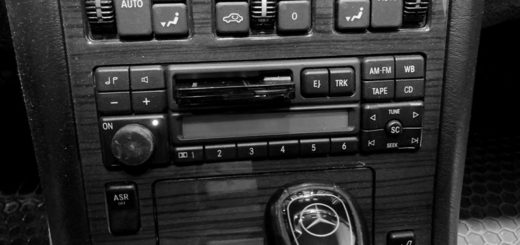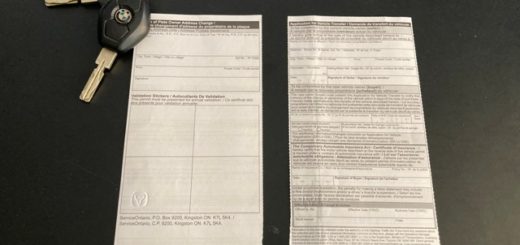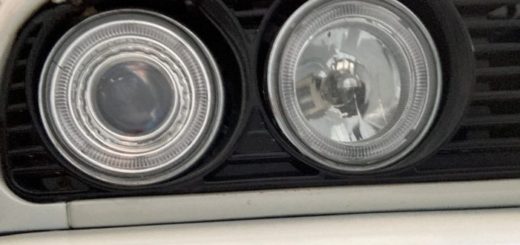Buying a Used Car Ontario: Dealer vs Private
Buying a Used Car: Private vs Dealer. There are two main alternatives when buying a used car in Ontario: Dealership sales or Private sales. Dealerships are licensed entities regulated by Ontario government laws and regulations. Private sales come from owners which decide to sell their used cars privately.
Dealerships are regulated and required to obey laws or regulation imposed by Governmental agencies. Basically, you have a door to knock and complain if something goes wrong with your car shortly after purchase. To put in few words, dealership sales are regulated and safer while private sales are unregulated and cheaper.
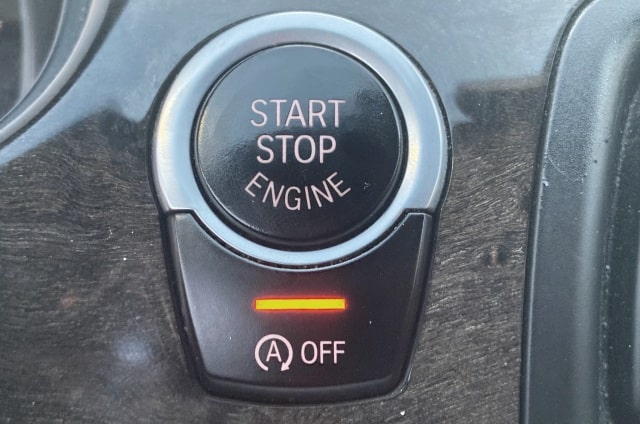
Private sales on the hand are unregulated and based on “Caveat Emptor” rules (Buyer beware). Once you buy a car from a private seller, its yours and you own it, good or bad. Whatever the condition or problems, you are going to have to deal and pay for repairs yourself.
You can not take the car back to seller or complain. Private sales are sold in “As Is, Where Is” condition and are final sales so to speak. Also, there is no recourse when buying a car privately. It’s ‘Buyer Beware” territory, once sale and purchase is finalized and money has changed hands you are on your own. Car is now yours.
Before buying a used car privately, you must do due diligence. Make sure you become familiar with cars, mechanical problems, paperwork, ownership transfers, payments methods, scams, curbsiders, vehicle history, etc.
Details on: What to Check When Buying a Used Car.
Buying a Used Car : Dealer vs Private
Dealer and private sales have their differences, weak and strong points. It’s your decision to make and mostly depends on what you are looking for and your general expertise about used cars.
If you have no experience and are looking for a fast and safe service then dealerships are your safest bet. Looking at price differences on used cars, dealerships are more expensive compared to private sellers.
However, there are some unrealistic private sellers which are more expensive than dealers for same exact same vehicle. Check multiple dealer vs private used car listings to get a clear idea on pricing and deals for a specific used car you are interested in buying.
In any case, generally you will pay more for used cars at dealerships. This is not only attributed to initial pricing but also extra charges and fees. Dealerships are known to pile up extra charges on top of original price.
(If you are also looking for a fast and easy solution to sell your car, more here on “How To Sell Your Car Fast In Ontario”. )
Buying a Used Car : Liens and Branding
As we already said, private sellers do not provide services or a safe environment as dealers do. As a result buying from a private seller requires more time and efforts on buyers part. It’s a compromise, you pay less but have to put in more work and efforts.
1- Liens
You got to be very careful about Liens when buying a used car. Never buy one unless you check for Liens or Loans first. On Dealer sales, you can be assured that a used car title will be free of Liens when you purchase a used car from a dealership.
Under Ontario laws, Dealerships are prohibited to sell cars which do not have Lien Free” status, under any circumstances. All dealerships check for Lien or Loans prior to selling their cars to customers.
On private sales side, you will need to do your own checks on Lien status. Bear in mind, if someone sells you a car which is still under payment and does not reveal that information to you before hand, chances are they will take your money and run.
You will have to deal with Lienholder (Bank or Financial Institution) later on yourself. As per their policy, Lienholders will reposes your car if monthly payments are stopped.
Details on: Buying a Car with Lien Ontario.
2- Previous Accidents, Collisions and Branding
Vehicle history should be an integral part of used car buying. Vehicle history helps filter used cars which have been involved in severe collisions, odometer tampering or rollback, Liens/Loans, Flood damage, Hail damage, Out of province, Theft recovery, etc. You need to make yourself familiar with vehicle history and how to interpret it.
In this aspect, you are safer buying a car form a Dealership. They are required by law to reveal all information about vehicle history, past accidents and collisions. As per Ontario regulations, a dealership must reveal to their customers if a vehicle has been involved in an accident valued at $3,000 or more in repairs.
As we previously said, private sellers are not bound by any regulations. You have to check vehicle history yourself before buying a used car. Vehicle history generally cost about $40 or so but is well worth it. Its crucial to help you make an informed decision and avoid unnecessary expenses latter on.
Details on: How to Check Vehicle History When Buying a Used Car
Buying a Used Car Dealer vs Private: Pricing
This is the strongest point of buying a used car privately. Nothing is set on stone but generally you will pay quite a bit less buying a used car from a private seller vs dealer. Operating a used car businesses is a very expensive proposition and dealers need to make a profit to stay in business. Therefore, they are less likely to lower their initial prices and you won’t be able to negotiate much.
Also, at a dealership you will be dealing with a professional salesperson, which is paid by commission and that doesn’t help either. Salesperson wages are depended on how much they make in term of sales, the higher total sales the more money they make. Price flexibility is the last thing in their mind.
Private sellers on the other hand just want to unload their used cars and are usually quite flexible on pricing. Depending on situation a private sell can give you a great deal, especially if their car has been in the market for a long time.
That’s not to say there no delusional private sellers asking for unrealistic prices, there are quite a few. However, generally speaking is easier to deal with a private seller than a salesperson when asking for a lower price or discount.
Details on: How to negotiate when buying a used car.
Safety Certification and Condition
Dealerships
Condition wise, you are generally safer purchasing a car from a dealership than privately. As we previously mentioned, in Ontario used car business is tightly regulated and most dealers are honest, or at very least they will respect minimum safety and mechanical condition standards.
Dealerships also have a reputation to uphold, otherwise they will fall to competition and go out of business. They need to uphold a fair and honest business profile to attract customers away from their competitors. As with everything else, open and free competition always plays in favor of customers and consumers.
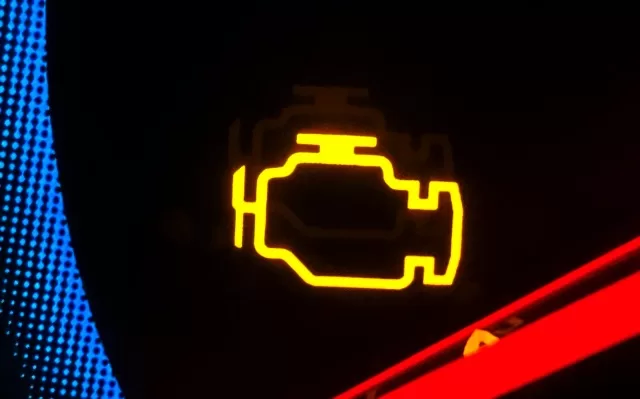
This is not to say you are 100% guaranteed a used car bought from a dealership will not have hidden problems or other issues, far from it but chances are lower compared to private sales.
Details on: Buying a Used Car in Ontario Guide.
Private Sales
Private sellers are not bound by any regulations, do not need to provide any guaranties or safety inspection. Most private sales are sold “AS IS, Where IS” and rightly so. People just wants to sell their used cars as easily as they can.
Instead, they will just list their car for sale, ask a lower price and hope they sell their car as soon as possible. However, private sellers shift responsibility directly to buyer. One common phrase is: My car broke down and/or is giving me a lot of problems. I will sell it and buy another one”.
That’s fine but if these used cars with problems end up on privates sales listing, then buyers will inherit those problems and will have to deal with them. Most often than not these mechanical problems are quite expensive, sometimes exceeding value of the car itself.
Again, it all comes down to due diligence from buyer’s side to search the market for best possible deal/price combined with a solid and reliable mechanical condition.
Extra Charges When Buying a Used Car
There is no competition here (dealer vs private) when buying a used car, dealers have extra charges and private sellers do not. As we all know, dealerships love extra charges. These extra charges most often than not, will add up thousand on top of original vehicle price.
There is a good reason for that: profit. While some of extra charges are justified as normal expenses related to vehicle sale and processing others are completely unnecessary add ons. These extra charges and fees will add up thousands on bill of sale and final price.
Most extra charges related to safety inspection, documentation, ownership transfer and licensing are real and justified. Dealership has to pay for these expenses and is fair to add these expenses on bill of sale.
However, extra charges such as key fob protection, paint protection, Electronic rust protection, unreasonably high administration fees, nitrogen filled tires and maintenance plans, etc, are added purely to increase their profit and add nothing of value.
Used Car Extra Warranty Plans
Especially be wary of extra Warranty plans which are very expensive and do not cover anything significant. Read the fine print thoroughly before buying one. Most have no real value and will cover only “engine block” or “transmission”, components which very rarely fail. What that means is, nothing is covered apart form internal engine or transmission components.
If air conditioning, alternator, power steering pump, head gasket, oil seals or any other component outside your engine fails you are not covered. Also, these warranties have high deductibles. Thousand of dollars in some cases which is completely unreasonable and pointless to pay for extra warranty.
All dealer extra charges are 100% negotiable, most shouldn’t be there in first place. If you are negotiating to buy a used car price and dealership adds thousands in extra charges, either ask for removal or walk away if they refuse. Find another dealership which appreciates and deals fairly with paying customers.
There is not much to write about private sales as far as extra charges are concerned, as there no extra charges. You pay only for the car and thats about it. As we said, strongest point of private sales is price, which in most cases is fairly and easily negotiable.
Tax When buying a Used Car
Tax on used car used to be differently years ago when Tax was split into GST and PST. Used cars sold by dealerships were charged 13% tax, while private sales were charged only 7% tax. Well, thats gone with introduction of HST.
Today, based on HST there are no differences in taxation. All used and new cars are charged 13% tax regardless of type of sales (private or dealer). When purchasing a car from a dealership you pay tax there, 13% tax will be added to bill of sale.
When purchasing a car privately, you dont pay tax to seller. You instead will pay tax (13%) when you transfer ownership under your name at Ministry of Transportation. Tax will be calculated based on Ministry of Transportation used car value book or the purchase price you declared on UVIP, whichever is higher.
Example: If Ministry of Transportation value book says your car is worth $1,000 and you declare purchase price of $800, tax will be 13% on $1,000. If Ministry of Transportation value book says you car is worth $1,000 and you declare purchase price $2,000, tax will be 13% on $2,000.
Scams When buying a Used Car
As far as scams go, you are safe when buying a used car from a dealer vs private sales which are easy pray to fraudulent activities. Scams and scammers target exclusivity private sales and listings.
There are hundreds of scam listings trying to lurk people into fake deals. Cars that don’t exist or photos collected over the internet are listed at unreasonably;y low prices. People who fall for these listing will be engaged by scammers in very clever and elaborate fraudulent schemes and in some cases lose their money.
Be prepared to acknowledge what is true or not when going thru private listings. Generally, if its too good to be true then probably it inst. Do not engage with people which want to sell you a car remotely, all these are scams. Buy a car only from rightful owner in person.
Under any circumstances do not send money remotely to anyone (Western Union, bank transfer, etc). Deal in cash and in person only, you must verify vehicle ownership before paying anything to anyone.
Details on: Scams when buying a used car.
(If you are also looking for a fast and easy solution to sell your car, more here on “How To Sell Your Car Fast In Ontario”. )
Dealer vs Private: Trade-in
If you have an older car to trade-in you are bound to dealerships sales. Private sellers do not offer that kind of service. Trading in your old car when buying a new (used) one is easiest way to get rid of your older vehicle.
Naturally, you will get more money if you sell your older car yourself instead of trade-in. Dealership will only offer you wholesale value which is quite lower than retail. However, is a compromise, you sell your car faster and easier as a trade-in, while private sales take a long time and need a lot of work.
A trade-in deal also saves you in taxes. You do not pay tax on value offered by dealership on your trade-in. As an example: if you are buying a $10,000 car and dealership offers you $3,000 on your old car as a trade-in, you pay tax on only $7,000.
Dealer vs Private: Financing a Used Car
When it comes to financing, buying a used car from a dealer is the only alternative vs private sellers which can not offer financing and will ask for full payment in cash. When buying a used car privately you should be prepared to pay for it in full and upfront.
Dealerships also offer financing options for people with bad credit or lack of credit, giving opportunity of purchasing a used car to people who otherwise wont be able to.
However, dealerships have different financing terms, they are not the same. You should look for best deal on price and financing options, including lowest interest rate and other initial charges or fees related to financing.
In case you just bought a used car: Maintenance After Buying a Used Car.
Comments: If you have any questions or suggestions related to this post or Used Car Toronto in general, don’t hesitate to use comment section below.


